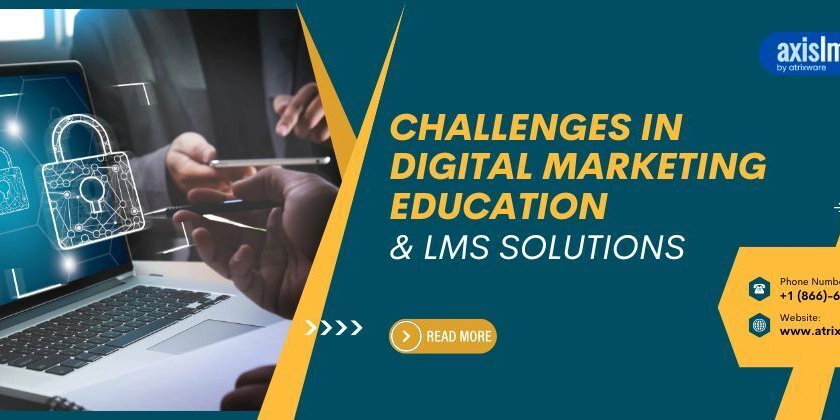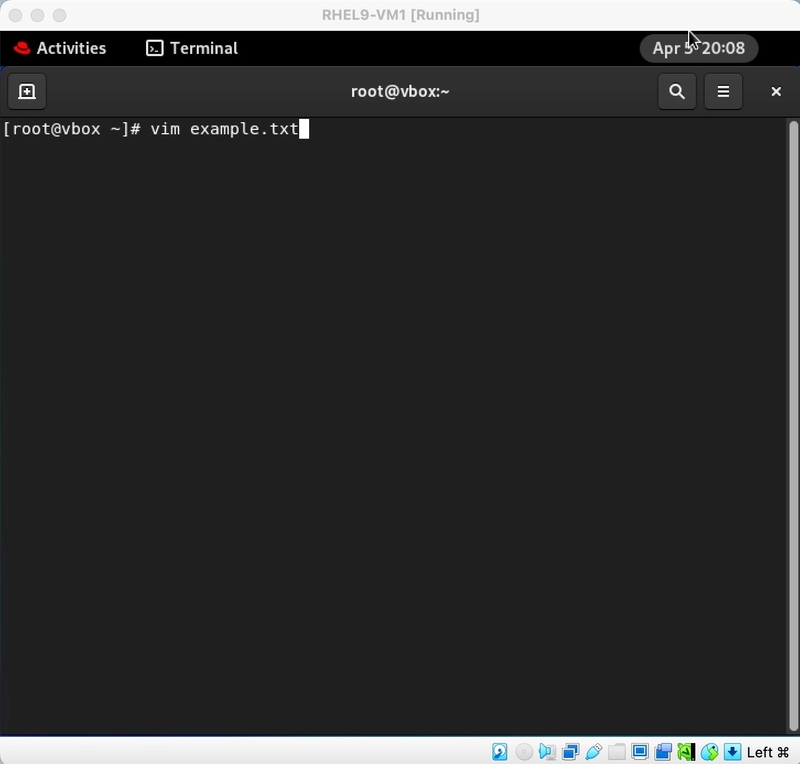Top Challenges in Digital Marketing Education and How LMS Solves Them
In today's fast-paced business world, digital marketing has emerged as a crucial skill. However, effectively teaching it presents unique challenges. The rapid evolution of technology, the need for a balance between theory and practice, and ensuring student engagement are just a few obstacles educators must navigate. Fortunately, Learning Management Systems (LMS) provide cutting-edge solutions that can significantly enhance digital marketing education. Key Challenges in Digital Marketing Education 1. Keeping Up with Industry Changes Digital marketing is one of the most dynamic fields, with frequent shifts in search engine algorithms, advertising policies, and consumer behavior. Traditional teaching materials can quickly become obsolete, making it challenging to keep coursework relevant. 2. Balancing Theory and Practical Application Mastering digital marketing requires more than theoretical knowledge—it demands hands-on experience with tools like Google Ads, Meta Business Suite, and SEO analytics. Many educational programs lack the resources to integrate real-world applications effectively. Implementing an LMS for Digital Marketing education ensures that students receive structured, interactive training that reflects current industry standards. 3. Enhancing Student Engagement Digital marketing involves technical concepts and data analysis, which can sometimes be overwhelming for students. Traditional lecture-based methods may not effectively maintain student interest, particularly in online learning environments. 4. Customizing Learning Paths Students come from diverse backgrounds, with varying levels of digital marketing proficiency. Some may already have experience with SEO and content marketing, while others are just getting started. A standardized approach can fail to address individual learning needs. 5. Efficient Performance Evaluation Evaluating digital marketing skills extends beyond traditional assessments. Practical tasks such as keyword research, social media campaign planning, and analytics interpretation require in-depth feedback, which can be time-consuming for educators. 6. Encouraging Collaboration and Industry Connections Digital marketing is inherently collaborative, requiring teamwork and strategic planning. Traditional learning methods may not provide sufficient opportunities for students to engage in collaborative projects or network with industry professionals. The Role of LMS in Overcoming These Challenges 1. Ensuring Up-to-Date Course Content LMS platforms allow educators to update course materials in real-time, ensuring that students always have access to the latest industry developments. Integration with industry blogs, market data, and case studies keeps learning materials fresh and relevant. 2. Facilitating Blended Learning A Learning Management System enables a combination of theoretical and practical learning through interactive exercises, simulations, and case studies. This approach helps students gain hands-on experience with essential marketing tools while reinforcing theoretical concepts. 3. Creating Interactive Learning Experiences To boost student engagement, LMS platforms incorporate gamification elements, video tutorials, quizzes, and discussion boards. Features like leaderboards, achievement badges, and interactive assignments keep students motivated and actively involved in their learning. 4. Offering Personalized Learning Paths LMS platforms provide adaptive learning experiences by assessing students' progress and tailoring content to their individual needs. AI-driven analytics track student performance and recommend additional resources or exercises for skill improvement. 5. Automating Performance Assessments and Feedback Built-in assessment tools within LMS platforms streamline grading and feedback processes. Educators can automate quizzes, track student progress, and provide AI-generated insights for performance improvement, especially in areas such as campaign analysis and SEO audits. 6. Encouraging Collaboration and Industry Networking LMS platforms foster a collaborative learning environment through discussion forums, group assignments, and virtual workspaces. Students can brainstorm marketing strategies, create campaigns, and receive real-time feedback from instructors and peers, simulating real-world teamwork. 7. Integrating with Industry Tools Modern LMS platforms integrate seamlessly with essential digital marketing tools like Google Analytics, HubSpot, SEMrush, and Mailchimp. This enables students to work with real-world data and develop practical skills relevant to their future careers. Additionally, an LMS for small companies can offer customized training modules, allowing employees to enhance their marketing skills without investing in expensive training programs. 8. Off

In today's fast-paced business world, digital marketing has emerged as a crucial skill. However, effectively teaching it presents unique challenges. The rapid evolution of technology, the need for a balance between theory and practice, and ensuring student engagement are just a few obstacles educators must navigate. Fortunately, Learning Management Systems (LMS) provide cutting-edge solutions that can significantly enhance digital marketing education.
Key Challenges in Digital Marketing Education
1. Keeping Up with Industry Changes
Digital marketing is one of the most dynamic fields, with frequent shifts in search engine algorithms, advertising policies, and consumer behavior. Traditional teaching materials can quickly become obsolete, making it challenging to keep coursework relevant.
2. Balancing Theory and Practical Application
Mastering digital marketing requires more than theoretical knowledge—it demands hands-on experience with tools like Google Ads, Meta Business Suite, and SEO analytics. Many educational programs lack the resources to integrate real-world applications effectively. Implementing an LMS for Digital Marketing education ensures that students receive structured, interactive training that reflects current industry standards.
3. Enhancing Student Engagement
Digital marketing involves technical concepts and data analysis, which can sometimes be overwhelming for students. Traditional lecture-based methods may not effectively maintain student interest, particularly in online learning environments.
4. Customizing Learning Paths
Students come from diverse backgrounds, with varying levels of digital marketing proficiency. Some may already have experience with SEO and content marketing, while others are just getting started. A standardized approach can fail to address individual learning needs.
5. Efficient Performance Evaluation
Evaluating digital marketing skills extends beyond traditional assessments. Practical tasks such as keyword research, social media campaign planning, and analytics interpretation require in-depth feedback, which can be time-consuming for educators.
6. Encouraging Collaboration and Industry Connections
Digital marketing is inherently collaborative, requiring teamwork and strategic planning. Traditional learning methods may not provide sufficient opportunities for students to engage in collaborative projects or network with industry professionals.
The Role of LMS in Overcoming These Challenges
1. Ensuring Up-to-Date Course Content
LMS platforms allow educators to update course materials in real-time, ensuring that students always have access to the latest industry developments. Integration with industry blogs, market data, and case studies keeps learning materials fresh and relevant.
2. Facilitating Blended Learning
A Learning Management System enables a combination of theoretical and practical learning through interactive exercises, simulations, and case studies. This approach helps students gain hands-on experience with essential marketing tools while reinforcing theoretical concepts.
3. Creating Interactive Learning Experiences
To boost student engagement, LMS platforms incorporate gamification elements, video tutorials, quizzes, and discussion boards. Features like leaderboards, achievement badges, and interactive assignments keep students motivated and actively involved in their learning.
4. Offering Personalized Learning Paths
LMS platforms provide adaptive learning experiences by assessing students' progress and tailoring content to their individual needs. AI-driven analytics track student performance and recommend additional resources or exercises for skill improvement.
5. Automating Performance Assessments and Feedback
Built-in assessment tools within LMS platforms streamline grading and feedback processes. Educators can automate quizzes, track student progress, and provide AI-generated insights for performance improvement, especially in areas such as campaign analysis and SEO audits.
6. Encouraging Collaboration and Industry Networking
LMS platforms foster a collaborative learning environment through discussion forums, group assignments, and virtual workspaces. Students can brainstorm marketing strategies, create campaigns, and receive real-time feedback from instructors and peers, simulating real-world teamwork.
7. Integrating with Industry Tools
Modern LMS platforms integrate seamlessly with essential digital marketing tools like Google Analytics, HubSpot, SEMrush, and Mailchimp. This enables students to work with real-world data and develop practical skills relevant to their future careers. Additionally, an LMS for small companies can offer customized training modules, allowing employees to enhance their marketing skills without investing in expensive training programs.
8. Offering Certifications and Career Advancement Opportunities
LMS platforms issue digital certificates upon course completion, helping students validate their expertise and stand out in the job market. Many LMS solutions also integrate with job boards and professional networking platforms, offering students valuable career opportunities.
Conclusion
Digital marketing education is essential for preparing future professionals in an increasingly competitive industry. However, teaching digital marketing presents unique challenges, from staying current with industry trends to ensuring student engagement. Learning Management Systems provide innovative solutions that enhance course accessibility, interactivity, and effectiveness.
By leveraging LMS platforms, educators can create a dynamic and engaging learning environment that equips students with the skills necessary for success. With continuous advancements in technology, adopting LMS solutions will be key to shaping the future of digital marketing education.












































































































































































![[The AI Show Episode 142]: ChatGPT’s New Image Generator, Studio Ghibli Craze and Backlash, Gemini 2.5, OpenAI Academy, 4o Updates, Vibe Marketing & xAI Acquires X](https://www.marketingaiinstitute.com/hubfs/ep%20142%20cover.png)



























































































































![[DEALS] The Premium Learn to Code Certification Bundle (97% off) & Other Deals Up To 98% Off – Offers End Soon!](https://www.javacodegeeks.com/wp-content/uploads/2012/12/jcg-logo.jpg)


![From drop-out to software architect with Jason Lengstorf [Podcast #167]](https://cdn.hashnode.com/res/hashnode/image/upload/v1743796461357/f3d19cd7-e6f5-4d7c-8bfc-eb974bc8da68.png?#)








































































































.png?#)

































_Christophe_Coat_Alamy.jpg?#)
 (1).webp?#)





































































































![Apple Considers Delaying Smart Home Hub Until 2026 [Gurman]](https://www.iclarified.com/images/news/96946/96946/96946-640.jpg)
![iPhone 17 Pro Won't Feature Two-Toned Back [Gurman]](https://www.iclarified.com/images/news/96944/96944/96944-640.jpg)
![Tariffs Threaten Apple's $999 iPhone Price Point in the U.S. [Gurman]](https://www.iclarified.com/images/news/96943/96943/96943-640.jpg)




































































































































